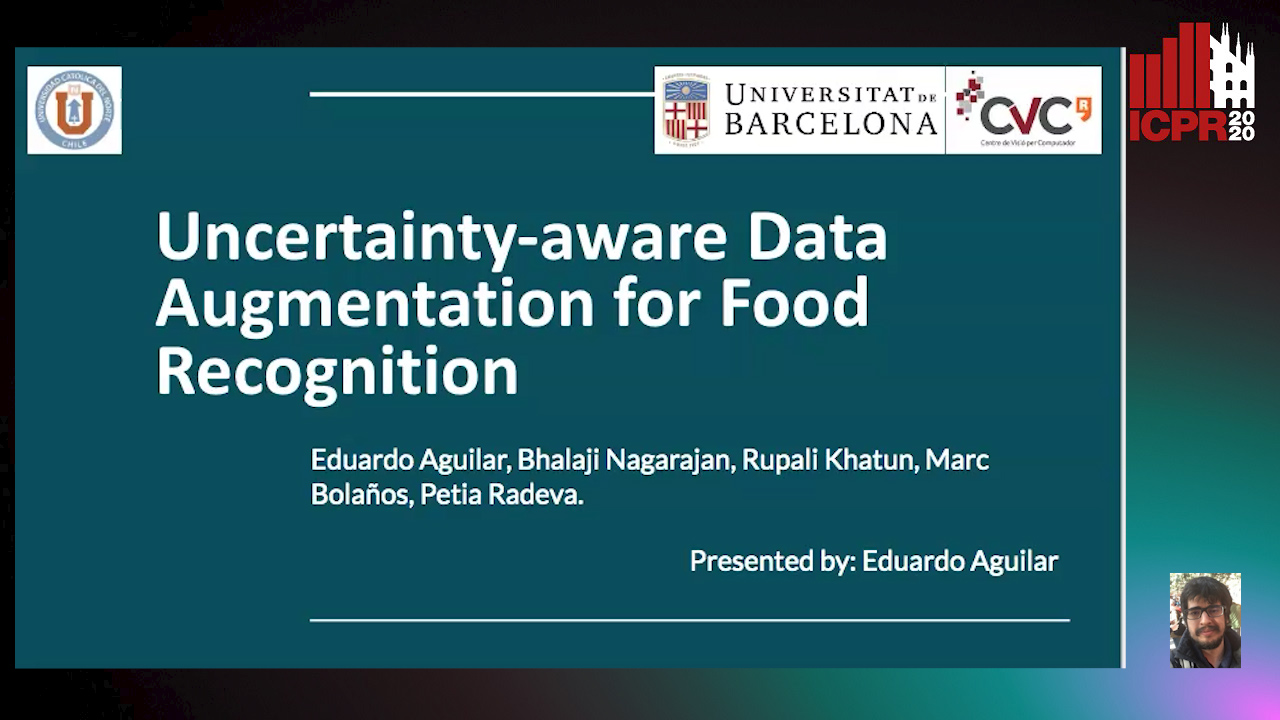Petia Radeva
Papers from this author
Modeling Long-Term Interactions to Enhance Action Recognition
Alejandro Cartas, Petia Radeva, Mariella Dimiccoli

Auto-TLDR; A Hierarchical Long Short-Term Memory Network for Action Recognition in Egocentric Videos
Abstract Slides Poster Similar
Uncertainty-Aware Data Augmentation for Food Recognition
Eduardo Aguilar, Bhalaji Nagarajan, Rupali Khatun, Marc Bolaños, Petia Radeva

Auto-TLDR; Data Augmentation for Food Recognition Using Epistemic Uncertainty
Abstract Slides Poster Similar